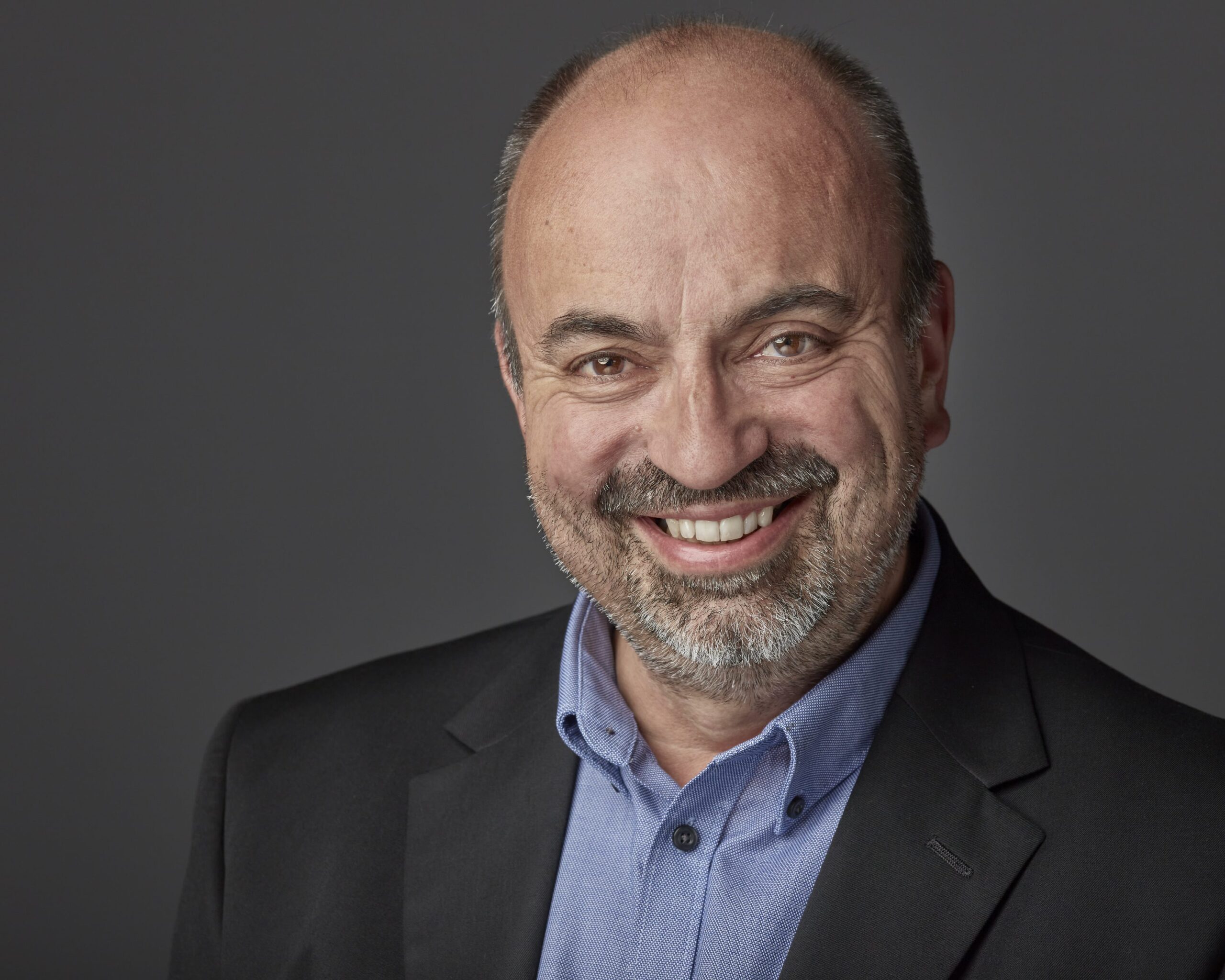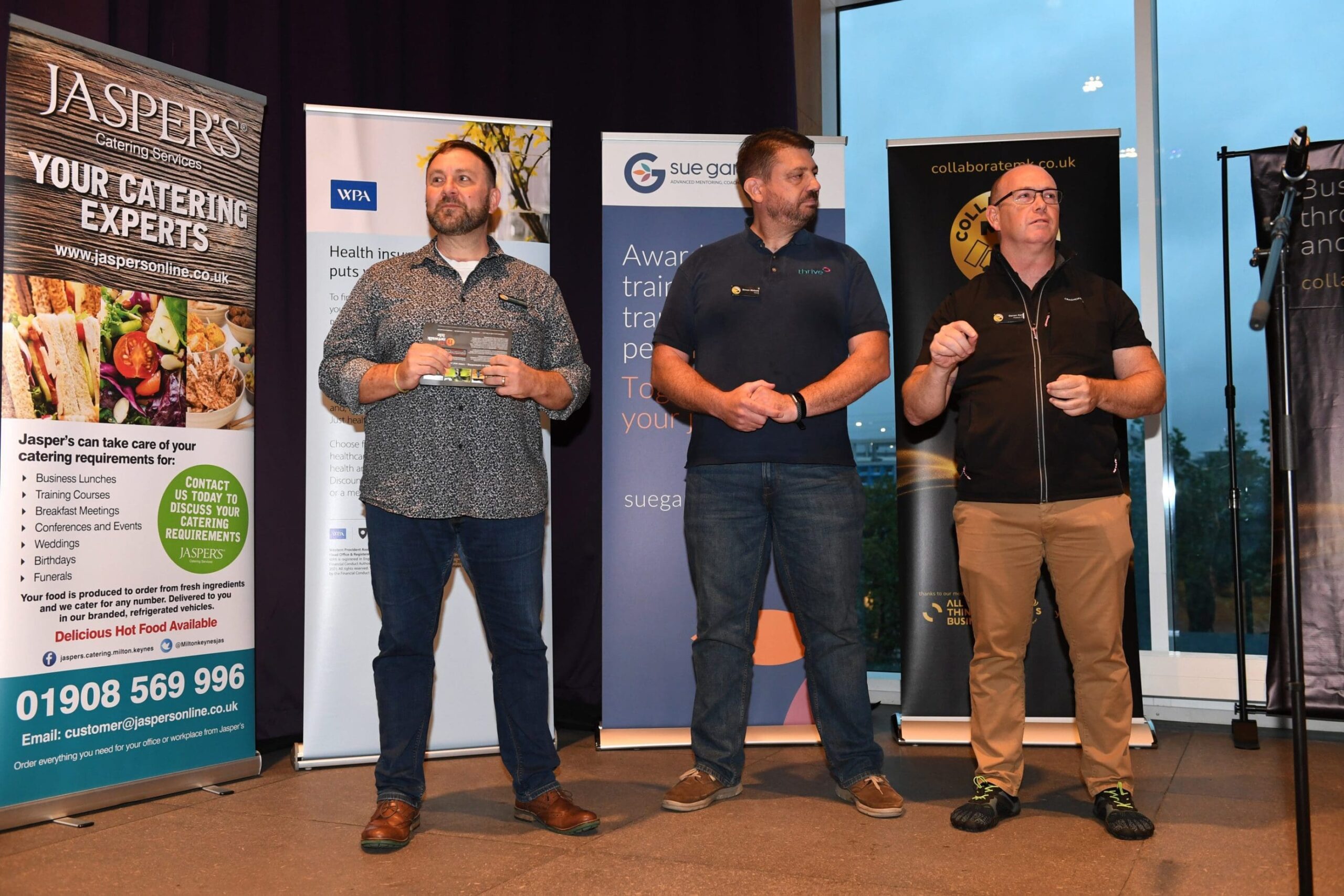With the support of networking group, Collaborate MK, Graham Miller of Media-Vu chats to two of Milton Keynes’ best-known health success stories – Simon Nichols, Founder and Wellbeing Director at Thrive, and Darren Kerr of PostureFit. And their topic? Mental and physical wellbeing.
GM: Simon – let’s start with you. You’ve been telling us how you see your role as helping people to understand and manage their mental health. Can you explain a little more?
SN: I set up Thrive a couple of years ago, and yes – you’re right – our goal is to help both individuals and businesses understand mental health issues. We achieve this through consultancy and training workshops. We work with people to help them to manage their own mental health. We also work with managers, helping them to appreciate the mental health challenges faced by their people. Our motto is to make one person’s life better every single day.
GM: Mental health seems to play such an important role in our lives these days. Is it getting worse? Or are we just talking about it more?
SN: Definitely the latter. We’re opening up more as a society. Let’s look at one mental health condition – depression. It has always been with us, but now, it’s more diagnosable than ever before. In November 2019, diagnosable cases in the UK were 5.2 million, in March 2021, the number of people in the UK diagnosed with depression had reached 11.6 million. We’re now talking about depression and acknowledging that it’s OK not to be OK.
GM: Over to Darren. You’re a specialist in the area of physical health – specifically movement and posture. Have we humans got it all wrong? Were we not built to do the things we’re trying to do?
DK: Yes, Graham – that’s true. Modern life has many benefits, but it brings its own problems too. For the last couple of generations, we’ve moved less and less. It’s movement that maintains our systems. It wasn’t long ago that we were all involved in physical work – working on the land or in large factories. Go back a few more generations, and we were scavenging for food – moving in everything we did.
GM: So, which industry is most affected by this?
DK: Probably the construction industry, where the annual cost of musculoskeletal injury is around £650m. My area of interest lies in keeping people moving and healthy. Like Simon, my business grew out of COVID. I had so many people who had taken up running, telling me about their ‘wonky bodies’.

GM: So Simon – what can we do about mental health at work? How do we start to put things right?
SN: Society needs to start focusing on the reduction of the stigma of mental health. We need to acknowledge the presence, not only of depression and anxiety but of stress, burnout and overwhelm. They all matter. After all, mental health costs the UK economy £45bn annually. For the benefit of us all, we need to face up to mental health as a genuine issue. We need to talk about it and deal with it.
GM: As you’ve suggested, the older generation was brought up with the unhealthy stiff-upper-lip approach. Will it be easier to train younger people to adopt a healthy attitude to mental health?
SN: Definitely Graham. The EQ, that’s the Emotional Quotient of young people, is higher than ever. We’ve taught children to feel confident about talking about feelings. Just the fact that we’re all having this discussion today is hugely encouraging. The future looks good, but there will always be challenges – the damage that’s caused by social media, for example.
GM: Darren, how do you think the future looks for your field of expertise – posture and movement? Will we soon be saving the NHS money by making a better job of looking after ourselves?
DK: I’m sure that’s the case, Graham. And don’t forget how closely connected mental and physical wellbeing are. You can see for yourself how physical health affects the mental side of things. Look at any top athlete or sportsperson – how their physical demeanour can boost their self-confidence. A strong body shape makes such a difference to an athlete’s all-round mental strength. We really shouldn’t separate the mental and physical side of things. The sooner we take ownership of our health, the sooner we’ll make life easier for the NHS. It’s up to us all to do our bit – individuals and business leaders.
GM: So, presumably, Simon and Darren, you’ve made some terrific connections within the Milton Keynes networking group, Collaborate MK. You have some of the region’s most prominent businesses – of all sizes – represented there.
SN: That’s certainly true, Graham. Collaborate MK’s members have been enormously receptive to our message.
DK: That’s right. We’re finding that the sum of our joint message – the idea of linking the mind, the body and the workplace is definitely greater than the individual parts!
GM: Darren, Simon – thank you for your time. Let’s hope 2022 brings you both individual and collective success.

Tim Lee
Collaborate MK
Find out more about Collaborate MK by contacting Tim Lee at tim@Collaboratemk.co.uk or
visit www.Collaboratemk.co.uk













